10 Best Herbal Baths For Anxiety
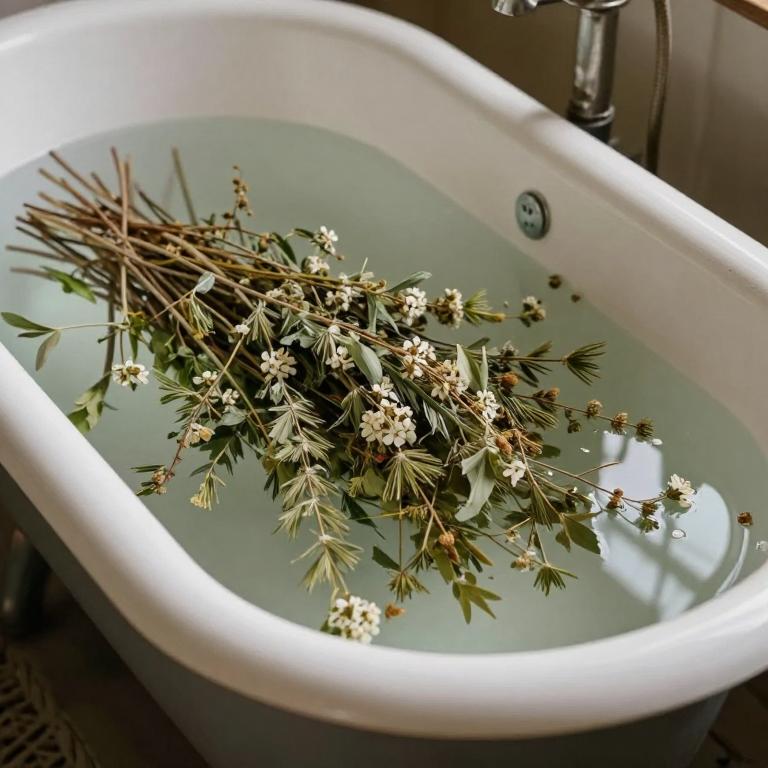
Herbal baths can be a soothing and effective way to alleviate symptoms of anxiety by promoting relaxation and reducing stress.
Certain herbs, such as lavender, chamomile, and valerian root, are known for their calming properties and can be added to bath water to enhance the therapeutic experience. The act of soaking in warm water combined with the aromatic properties of these herbs helps to ease muscle tension and calm the mind. Regular use of herbal baths may support a sense of well-being and improve sleep quality, which are often impacted by anxiety.
While herbal baths are not a substitute for professional treatment, they can be a valuable complementary practice for managing stress and emotional balance.
Table of Contents
- 1. Valerian (Valeriana officinalis)
- 2. Maypop (Passiflora incarnata)
- 3. English lavender (Lavandula angustifolia)
- 4. Lemon balm (Melissa officinalis)
- 5. Licorice (Glycyrrhiza glabra)
- 6. St. john's wort (Hypericum perforatum)
- 7. Yarrow (Achillea millefolium)
- 8. Chamomile (Matricaria chamomilla)
- 9. Salvia (Salvia officinalis)
- 10. Oregano (Origanum vulgare)
1. Valerian (Valeriana officinalis)

Valeriana officinalis, commonly known as valerian, is a traditional herbal remedy that has been used for centuries to alleviate anxiety and promote relaxation.
When used in herbal baths, valerian root can help soothe the nervous system by releasing compounds that may reduce stress and anxiety levels. To prepare a valerian bath, steep dried valerian root in boiling water for several hours, then add the infused liquid to warm bath water. The calming effects of valerian are believed to be due to its high concentration of volatile oils and alkaloids, which may have sedative properties.
Regular use of valerian-infused baths can provide a natural, aromatherapy-like experience that supports mental well-being and restful sleep.
2. Maypop (Passiflora incarnata)
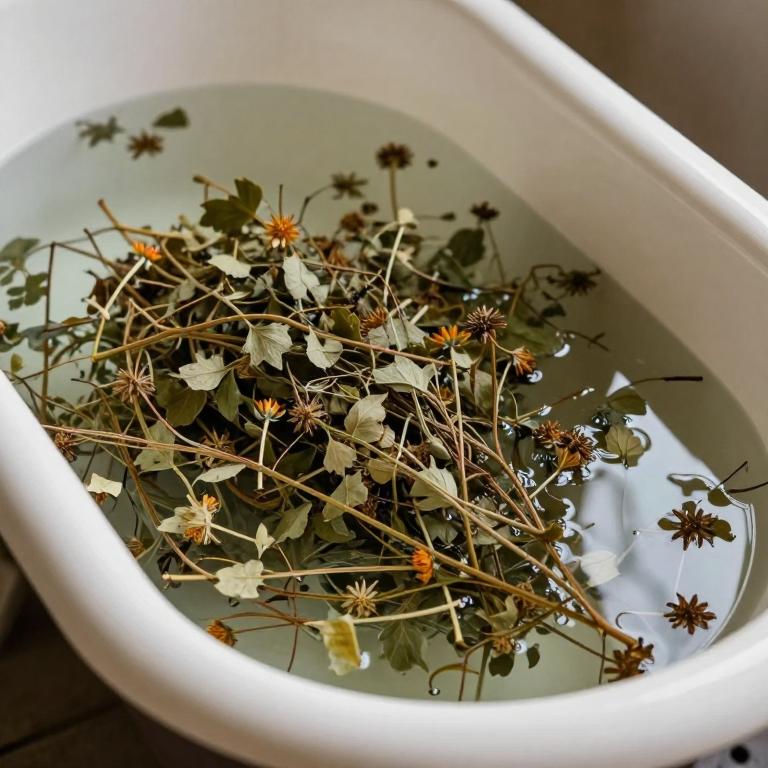
Passiflora incarnata, commonly known as wild passionflower, has been traditionally used for its calming properties and is now being explored as a natural remedy for anxiety through herbal baths.
When infused into bathwater, the essential oils and compounds from passiflora incarnata can be absorbed through the skin, promoting relaxation and reducing stress levels. This method offers a soothing alternative to conventional anxiety treatments, allowing individuals to unwind in a tranquil setting. The sedative effects of passiflora incarnata may help alleviate symptoms of anxiety by influencing the central nervous system.
However, it is important to consult with a healthcare professional before incorporating this herbal bath into a treatment plan, especially for those with existing medical conditions or who are taking medications.
3. English lavender (Lavandula angustifolia)

Lavandula angustifolia, commonly known as English lavender, has been widely used for its calming properties, making it a popular choice for herbal baths aimed at reducing anxiety.
When infused into bath water, the essential oils from lavender release a soothing aroma that can help promote relaxation and ease mental tension. The combination of warm water and lavender’s natural compounds, such as linalool and lavandic acid, may help lower stress hormones like cortisol and improve mood. Regular use of lavender baths can create a calming ritual that supports emotional well-being and encourages a sense of peace.
While not a substitute for professional treatment, lavender baths offer a natural, accessible method to manage symptoms of anxiety in a gentle and aromatherapeutic way.
4. Lemon balm (Melissa officinalis)
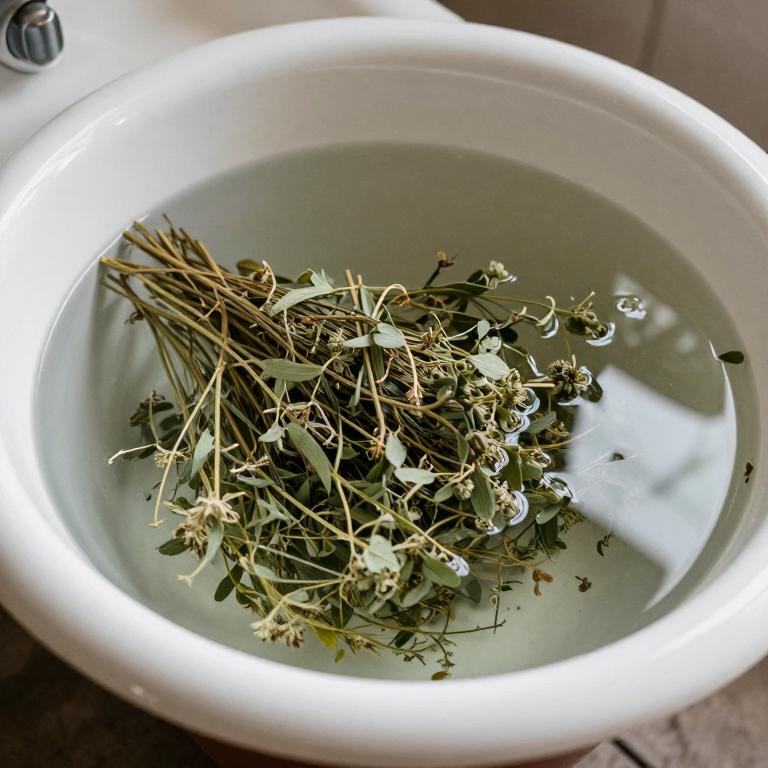
Melissa officinalis, commonly known as lemon balm, is a herb widely used in herbal baths to alleviate symptoms of anxiety.
When infused into bathwater, lemon balm releases calming compounds that can soothe the nervous system and promote relaxation. The gentle, soothing aroma of lemon balm has a calming effect on the mind, helping to reduce feelings of stress and tension. Regular use of lemon balm baths may support emotional well-being and enhance sleep quality in individuals experiencing anxiety.
This natural remedy offers a safe and accessible way to incorporate aromatherapy and herbal therapy into a self-care routine for managing anxiety.
5. Licorice (Glycyrrhiza glabra)
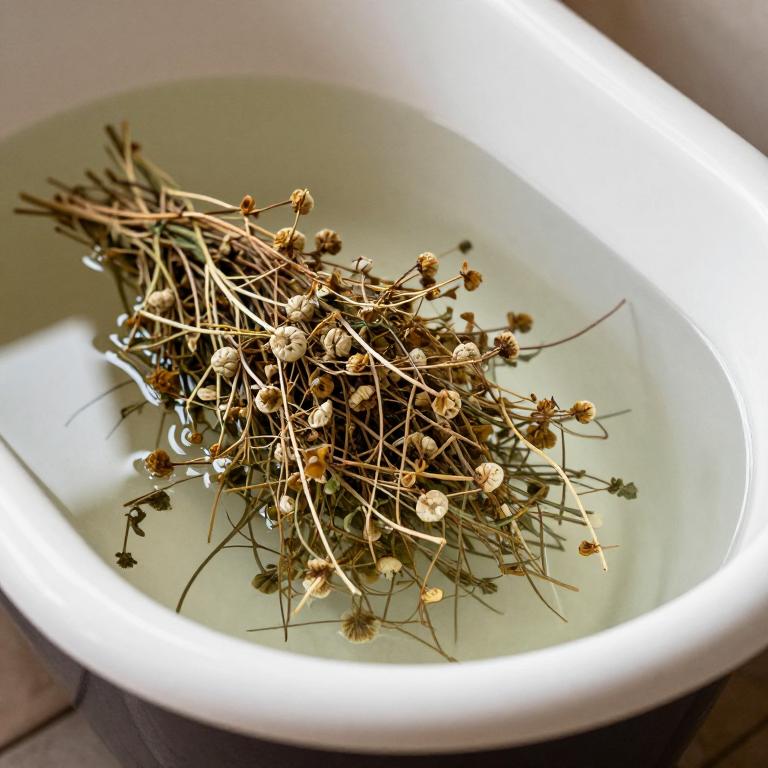
Glycyrrhiza glabra, commonly known as licorice root, has been traditionally used in herbal medicine for its soothing properties, and incorporating it into herbal baths can offer relief for anxiety.
When infused into warm water, licorice root releases compounds such as glycyrrhizin and flavonoids, which may help calm the nervous system and reduce stress. The calming aroma of licorice root can promote relaxation and ease mental tension, making it a valuable addition to a self-care routine. Regular use of licorice root baths may support emotional well-being by fostering a sense of tranquility and balance.
However, it is important to use licorice root in moderation, as excessive consumption can lead to side effects such as increased blood pressure.
6. St. john's wort (Hypericum perforatum)

Hypericum perforatum, commonly known as St. John's Wort, has been traditionally used for its calming properties and is often incorporated into herbal baths to alleviate symptoms of anxiety.
When added to warm bath water, the active compounds in St. John's Wort, such as hyperforin and hypericin, may help reduce stress and promote a sense of relaxation. These baths can be a soothing alternative or complement to conventional anxiety treatments, offering a natural and aromatherapeutic approach. The gentle warmth of the water combined with the herb's aromatic properties enhances the overall calming effect.
However, it is important to consult a healthcare provider before using St. John's Wort, as it can interact with certain medications.
7. Yarrow (Achillea millefolium)

Achillea millefolium, commonly known as yarrow, has been traditionally used in herbal baths to alleviate symptoms of anxiety due to its calming and sedative properties.
When infused into bath water, the essential oils and compounds in yarrow can promote relaxation and ease tension, helping to reduce feelings of stress and overwhelm. The warm water combined with the soothing effects of yarrow can enhance the body's natural ability to manage anxiety, offering a gentle and holistic approach to mental well-being. This practice is often recommended for those seeking natural remedies to support emotional balance and restful sleep.
Incorporating yarrow into a regular bathing routine may provide a consistent, nurturing way to nurture both mind and body during times of heightened anxiety.
8. Chamomile (Matricaria chamomilla)
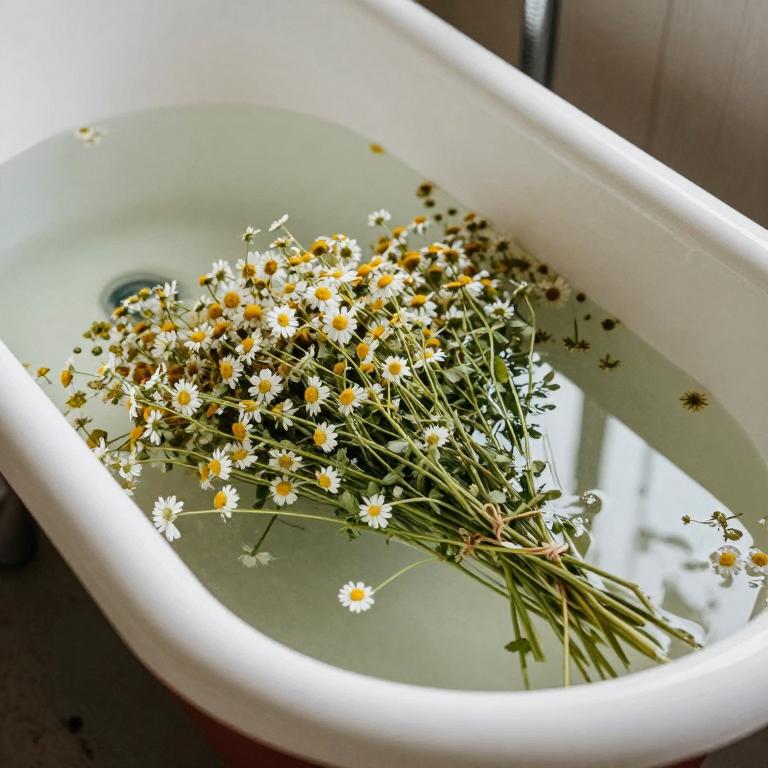
Matricaria chamomilla, commonly known as chamomile, has been traditionally used in herbal baths to alleviate anxiety and promote relaxation.
The calming properties of chamomile are attributed to its high concentration of essential oils, such as bisabolol and chamazulene, which have sedative and anti-inflammatory effects. When infused into bathwater, chamomile can help soothe the nervous system and ease tension, making it a popular choice for stress relief. Many individuals find that soaking in a chamomile bath for 15 to 30 minutes can significantly reduce feelings of anxiety and improve overall mood.
Incorporating chamomile into a regular self-care routine can offer a natural and gentle way to manage anxiety and enhance emotional well-being.
9. Salvia (Salvia officinalis)

Salvia officinalis, commonly known as sage, has been traditionally used in herbal baths to alleviate symptoms of anxiety due to its calming and soothing properties.
When infused into bath water, sage releases essential oils that can help relax the nervous system and promote a sense of tranquility. The aromatic compounds in sage, such as thujone and camphor, are believed to have a positive effect on mood and mental clarity. Taking a sage herbal bath can provide a natural, non-invasive way to reduce stress and enhance emotional well-being.
However, it is important to use sage in moderation and consult with a healthcare professional, especially for individuals with sensitive skin or specific medical conditions.
10. Oregano (Origanum vulgare)
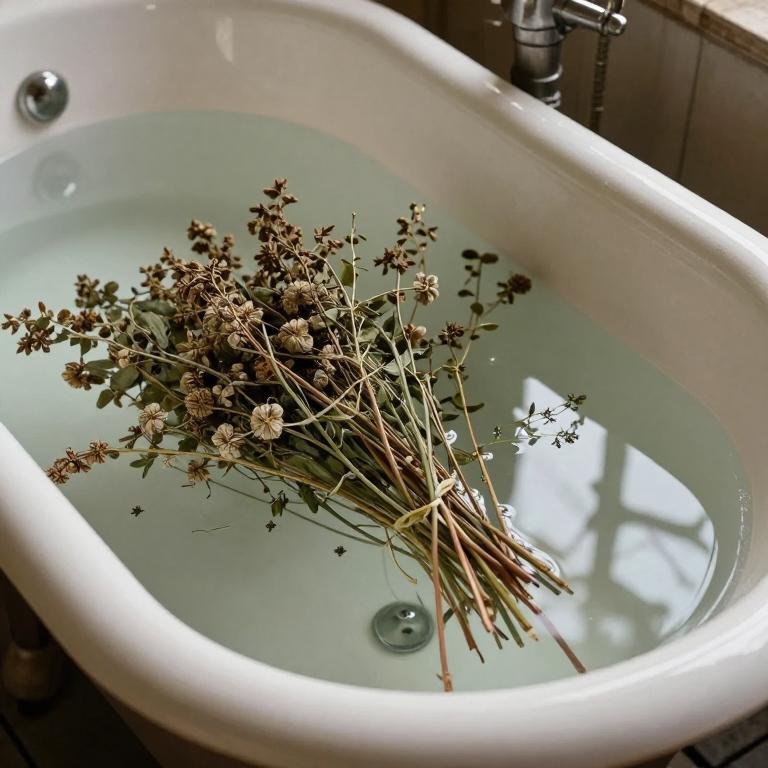
Orihanum vulgare, commonly known as oregano, has been traditionally used in herbal baths to help alleviate symptoms of anxiety due to its calming and soothing properties.
When infused into bath water, the essential oils and aromatic compounds of oregano can promote relaxation and ease tension, making it a popular natural remedy for stress relief. The warm water combined with the soothing scent of oregano can help lower cortisol levels and improve mood, offering a gentle yet effective way to manage anxiety. This herbal bath is often recommended for its ability to create a calming environment that supports mental well-being.
However, it is important to use oregano in moderation and consult with a healthcare professional, especially for those with sensitive skin or existing medical conditions.